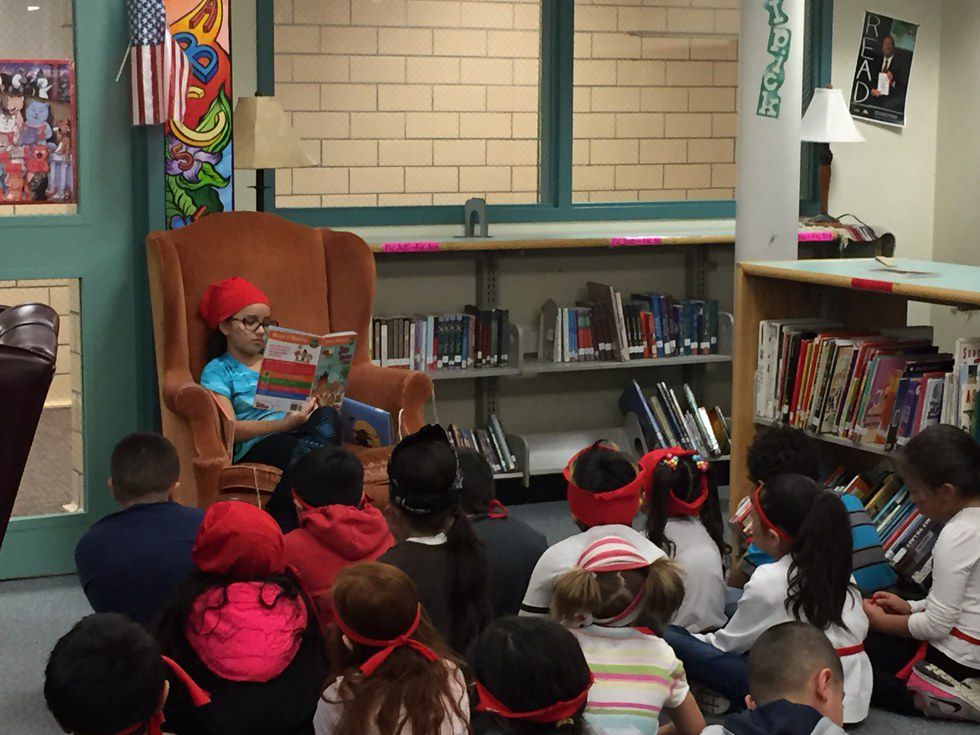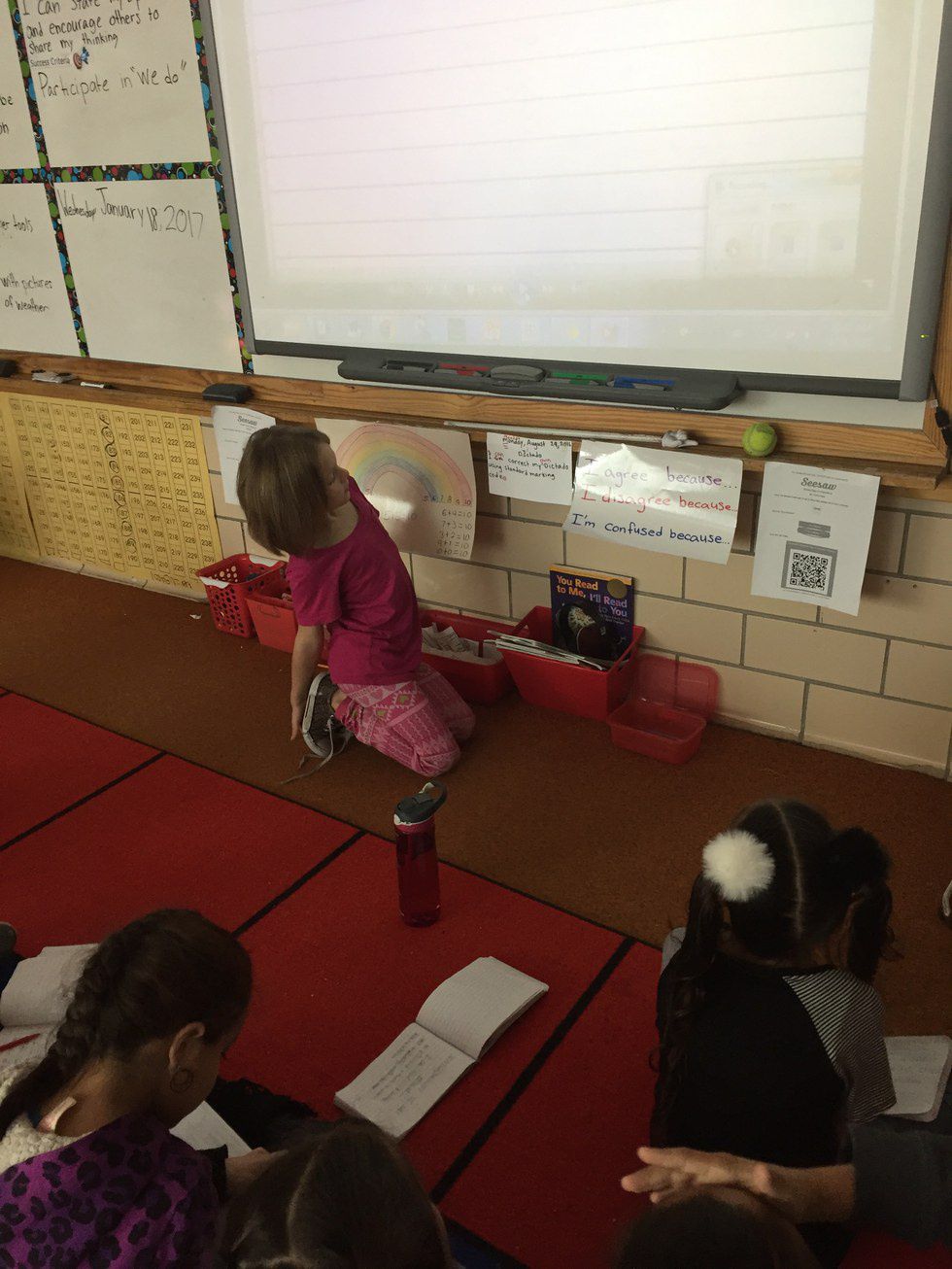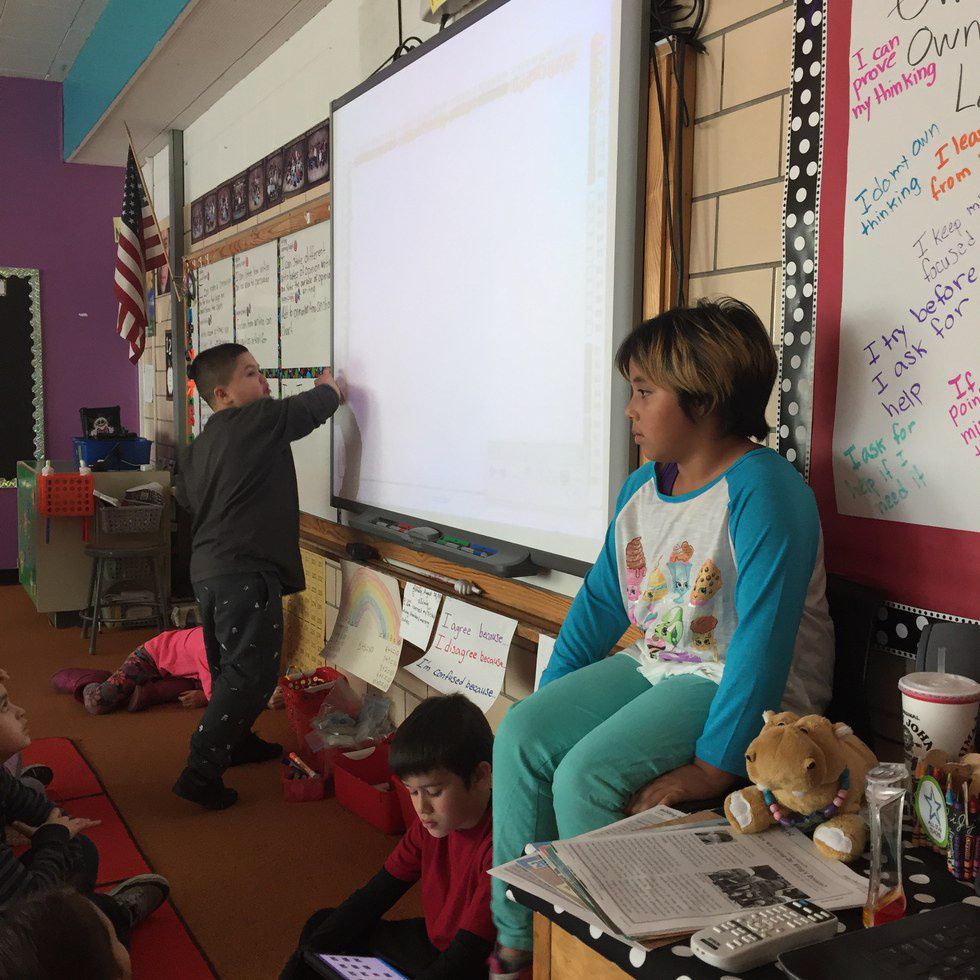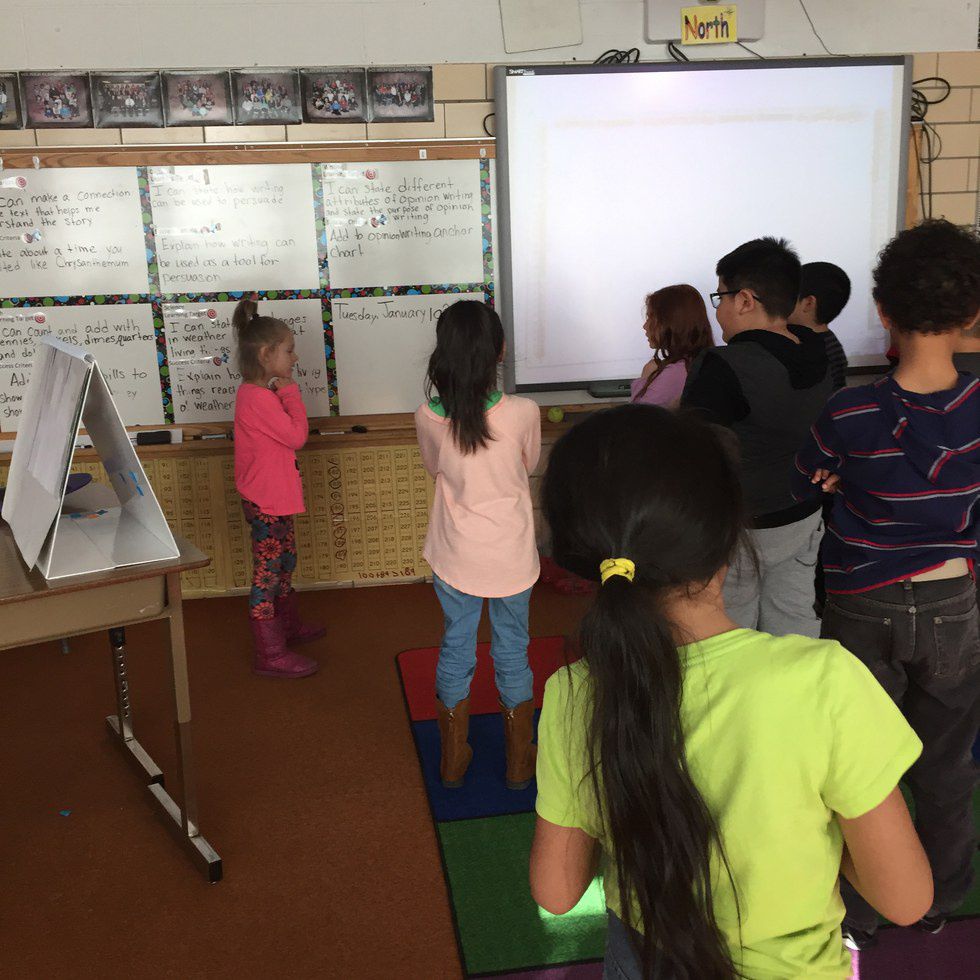Back when I was a paraprofessional, I had the privilege of working with one of the most amazing educators I have ever known. I learned more from her by simply listening to her, watching her and being in her presence than I ever did in school. Quite often I hear her voice in my head as I'm teaching.
However, one thing that she taught me has stuck with me more than any other: reciprocal teaching. In it's pure form reciprocal teaching works as described here, and it's mostly used during literacy. I used this strategy as a para in my many reading groups, and it worked wonders. It really helped the kids to own their learning because students do a lot of the taking. When I finally got my own classroom I decided to tweak this strategy a little and use it throughout our day.
When you hear or read something you remember very little of it, when you do something you remember a little more, but when you have to teach someone else to do something you are much more likely to retain the information. With that in mind I let my students act as teachers quite often. In fact, I have become more of a facilitator than a teacher these days.
My students know how to lead all of our daily routines. From reading and repeating our expectations to leading brain breaks, they can do it all! I even have them trained to sit quietly while other students do "read alouds."
We use this strategy the most often during math. Every day we do what we call "math routines." These last for about 10 to 20 minutes and include several activities that we repeat often as well as number talks. After I teach the basic routines in the first couple weeks of school, the kids facilitate the entire process completely on their own; People are amazed at how independent they are. Sometimes I have to give them a little guidance, but for the most part they do it alone.
Everyday I pick a different math leader. They take on the roll of teacher and call on others to answer questions and lead the smaller sections of the routines. The coolest part of the process is when they disagree. For the most part they disagree nicely and help each other come around to the correct answer. Once in awhile I need to intervene because tempers flair, but that is a lesson in itself. This method causes them to think more deeply because there isn't an adult there to rescue them; They have to do all the work. They're also more engaged because it is really their lesson and not mine.
Having the kids used to having another student up front leading also has a hidden perk. Sometimes things don't go as planned and you have to stop teaching and deal with something on the spur of the moment. When that happens, it's nice to have students who can step up and take your place. My kids know all our classroom routines so well that they can take over any time I need them too. Imagine the confidence and power that gives a child!

























